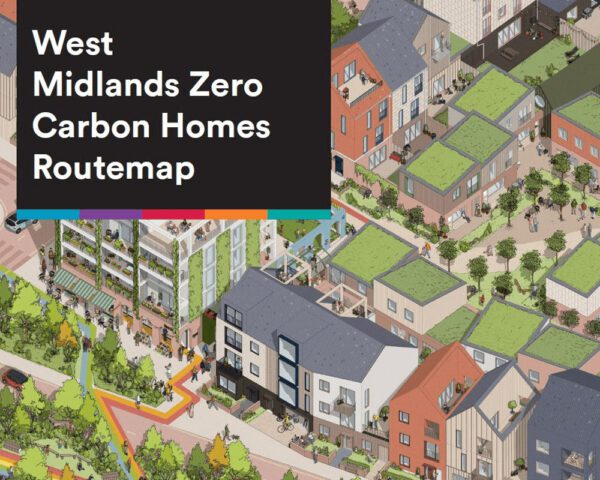The West Midlands Combined Authority (WMCA) has ambitious plans to make the West Midlands net zero by 2041. They appointed us to develop a zero carbon homes evidence base, Charter and Routemap.
Our first step was to determine the region’s current development baseline and best practices by reviewing proposed development pipeline, conducting a policy baseline review and assessing indicative case studies.
Using the interactive tool we created, we modelled what it would take to bridge the current performance gap and deliver zero carbon homes using four scenarios:
- Baseline Scenario: Modelled after the building regulations, which represents WMCA’s current baseline position.
- Best Practice Scenario: WMCA’s current best practice with enhanced fabric improvements and some investments in PVs.
- Emerging Practice Scenario: Models a transition to heat pumps and heating networks. Unregulated emissions are also addressed.
- Pioneering Practice Scenario: Models investments in highly efficient heat pumps with passive-like insulation standards.
Driving zero carbon
Our baseline analysis concluded that current practices will not allow WMCA to meet its zero carbon homes target with a performance gap resulting in 283,176 tCO2 being emitted. We also concluded an electric-led solution offers great potential in reducing CO2 emissions across all typologies.
We worked with WMCA’s internal and external stakeholders, including officers from member local authorities and a task force of industry experts chaired by UKGBC, to co-develop a Zero Carbon Homes Charter. The Charter frames the WMCA and its partners’ commitment and long-term objectives to deliver zero carbon homes in the region.
By embracing the Charter’s twelve principles, WMCA can build a region which will drive zero carbon development and innovation, future proof the regional economy and enable local communities to prosper for years to come.
Through a series of engagement sessions, we translated these ambitions into a Zero Carbon Homes Routemap. It sets out short, medium and long-term actions against five cross-sector enablers: policy and guidance, governance model and delivery processes, financial capital, human capital, as well as innovation, technology and infrastructure.








